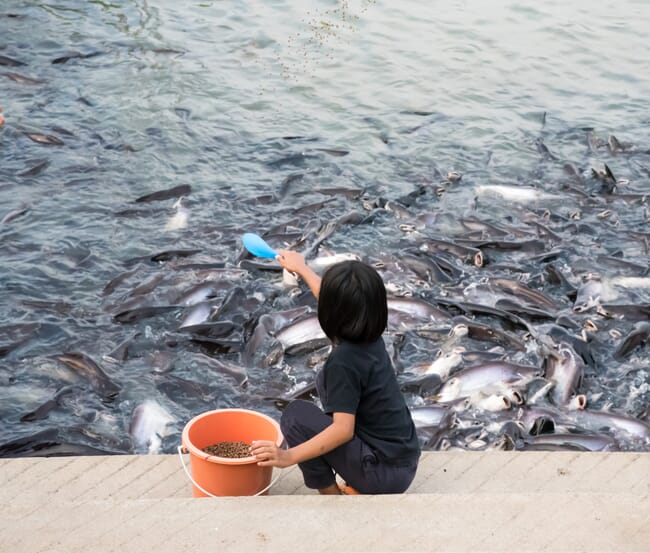
The World Wildlife Fund (WWF), in partnership with the Global Salmon Initiative (GSI), has launched an unprecedented environmental, social, governance (ESG) risk assessment tool for aquafeed ingredients.
It is hoped that the tool will improve visibility into supply chains, allowing stakeholders to better identify and address possible ESG risks. Although designed to support the salmon farming sector, the tool may also benefit wider animal agricultural production sectors.
The tool provides a consistent framework for aquaculture companies to engage with feed suppliers in order to get a holistic overview of possible risks in the feed supply chain. Such risks could include biodiversity loss, climate change, resource use, environmental footprint, health and welfare, nutrition, human rights, and governance.
All data collected as part of the tool is confidential and only shared between feed supplier and farming company. By using the tool and identifying possible risks, the aim is to encourage innovation, spur continued developments in the sourcing of feed ingredients to minimise ESG risk, and ensure farmed salmon continues to offer a healthy and sustainable food choice.
Additionally, the tool can also be used to assess the scalability of future novel ingredients. With this knowledge, companies can make more informed sourcing decisions aligned with their strategic priorities and values.
The tool, developed over a three-year period in consultation with GSI members, WWF, and industry feed companies, is the first time a common methodology is available to support greater alignment in feed data collection.
“Feed ingredient sourcing remains one of the main sustainability challenges in salmon farming, and food production more broadly. The surprising amount of unknown information in feed-ingredient supply chains leaves the sector open to unintentional risks and vulnerabilities - even for companies prioritising sustainable, ethical production,” said Daniel Miller, aquaculture lead specialist at WWF, in a press release announcing the launch.
“Looking at supply chains broadly and holistically doesn’t just mitigate risk; it also facilitates more informed and strategic decisions,” he added.
Alongside the tool, WWF in collaboration with GSI and Grieg Seafood, released a business case, Feed of the Future: Transparent and Traceable. The paper outlines the challenges inherent in feed production, the development of the tool, and Grieg Seafood’s experience applying it to their supply chain.
“We know we need to improve the level of transparency and traceability in our supply chains. Not only for our own knowledge, but also to provide feedback and assurances to our customers, regulators, communities, and long-term investors that we are sourcing from responsible and sustainable sources,” commented Tor Eirik Homme, director of Feed and Nutrition at Grieg Seafood.
The tool is in its first iteration and will be updated as companies begin to use it and collect insights into their supply chains. Additionally, annual amendments will ensure the tool continues to support and deliver on its intended purpose.




